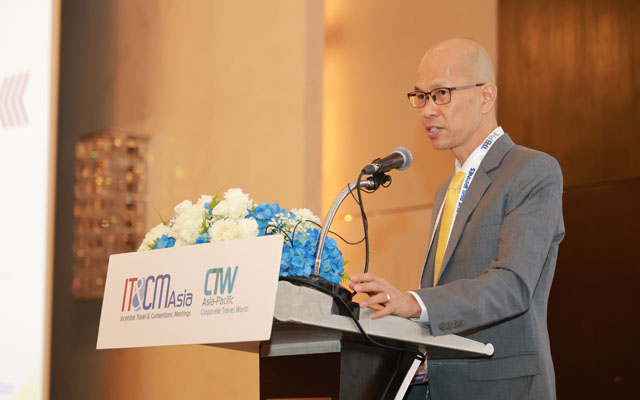This month, in a collaboration between the private sector and local government, Phuket province is launching its Phuket Sustainable Strategies 2030, a 10-pillar framework designed to propel the province towards global Sustainable Development Goals (SDGs).
The freshly-minted framework refines the 10+ pillars strategy, notably merging Fisheries & Farms into a singular Value-Based Agriculture pillar for greater clarity. Additionally, while gastronomy once spearheaded the plan, the baton has now been passed to education, reflecting a strategic shift in priorities.

The plan is designed to recalibrate Phuket’s predominant reliance on leisure tourism, historically accounting for 95 per cent of its income. Three of the pillars will help the province in diversifying its tourism focus to MICE, becoming a Medical and Wellness Tourism hub, and transforming into a centre for Sports Tourism & Training Camps.
Deputy governor Amnuay Pinsuwan notes the strategic move towards a “new economy”, lessening tourism dependence and delving into varied sectors. Other pillars include becoming the education hub of Asia, a maritime industry centre, the smart city initiative sandbox, an SME-focused ecosystem, and further emphasising its culinary side as a creative gastronomy city.
Bhummikitti Ruktaengam, president of the Sustainable Tourism Development Foundation (STDF) and key advisor to the Phuket Tourism Association, stressed the integral role of tourism in Phuket’s socio-economic fabric: “Tourism and the environment are two sides of the same coin. Beyond environmental sustainability, our vision encompasses broader ESG goals. To make Phuket’s tourism truly sustainable, we’re laying down strategies that foster a ‘Better Phuket’ for future generations.”
The STDF has launched four pivotal projects that are key to the Better Phuket initiative.
The Food (Before) Waste project seeks to utilise unused food from hotel buffets and surplus stock from supermarkets at the foundation’s Metta Kitchen, where culinary students from local universities transform the leftovers into hygienic dishes. At the Kitchen, customers can pay what they feel is appropriate.
“We don’t believe in giving away things for free, but with the ‘pay as you wish’ model, we hope to increase accessibility to good food and lessen the societal gap,” commented Ruktaengam.
Additionally, Phuket Tourism Carbon Learning Center is a research-centric endeavour aiming to transform Phuket’s Old Town. In this collaborative hub, agencies can converge to champion low-carbon tourism and mitigate the carbon footprint. In line with this, the STDF is also collaborating with Phuket Old Town to pioneer research on low carbon tourism, underscoring the importance of carbon-free walking tours, waste reduction in the Sunday Market and wastewater management.
A new board of directors dedicated to the preservation of Phuket’s largest timbers has been established with the Phuket Big Trees initiative, coupled with programmes to educate on holistic tree maintenance and pruning for optimal shade.
The fourth initiative focuses on the inception of green financing tailored for SMEs, which extends to small businesses in every sector including hospitality.
Ruktaengam noted that for it takes financial support for businesses to become energy-conscious, and with no such financial initiatives presently available, it is “something we want to instigate”.
All four initiatives are being operated with the support of significant stakeholders, including the Phuket Chamber of Commerce, the Phuket Tourism Association, the Thai Hotels Association’s Southern Chapter, and the Phuket Hotels Association.





















